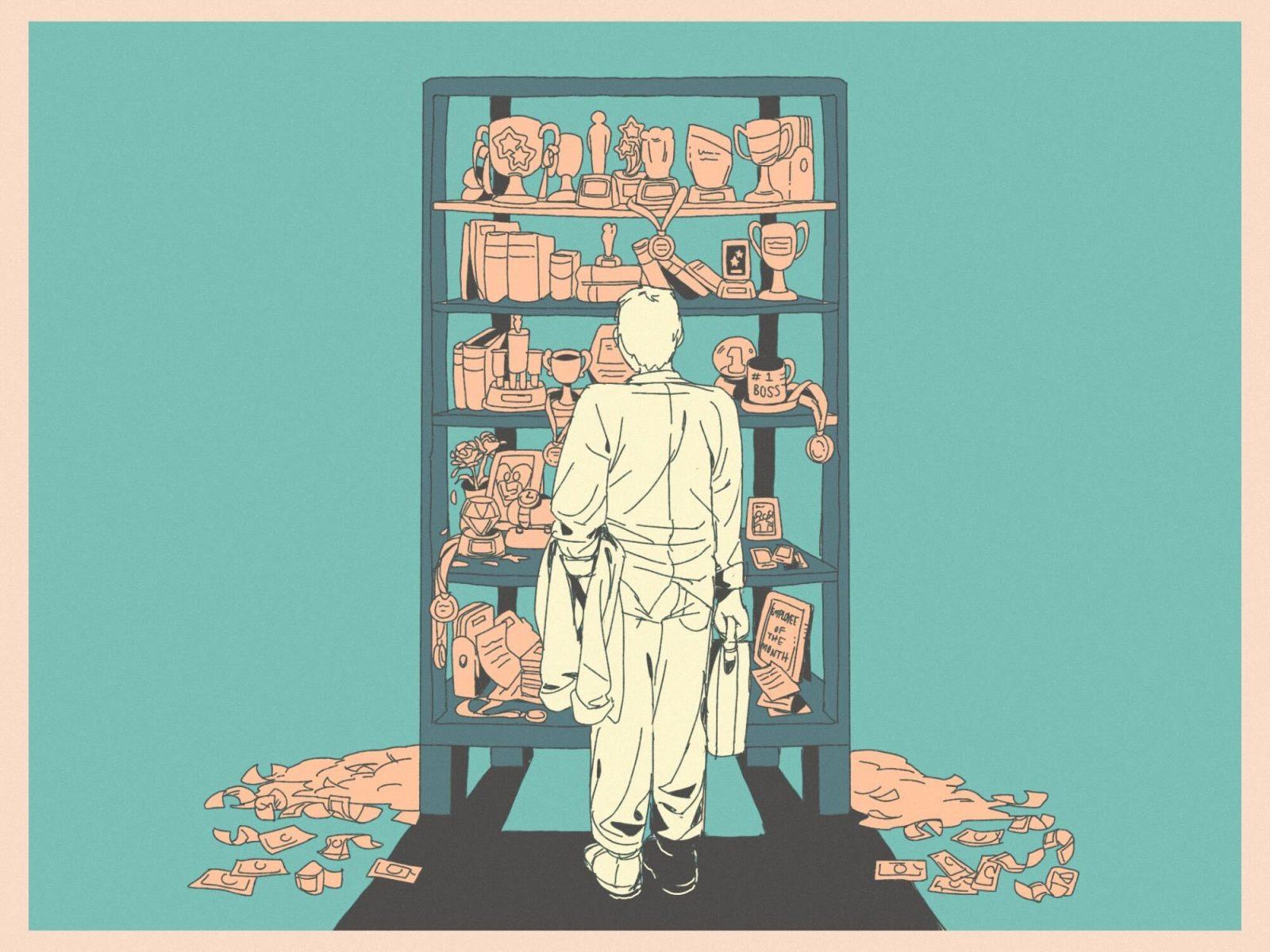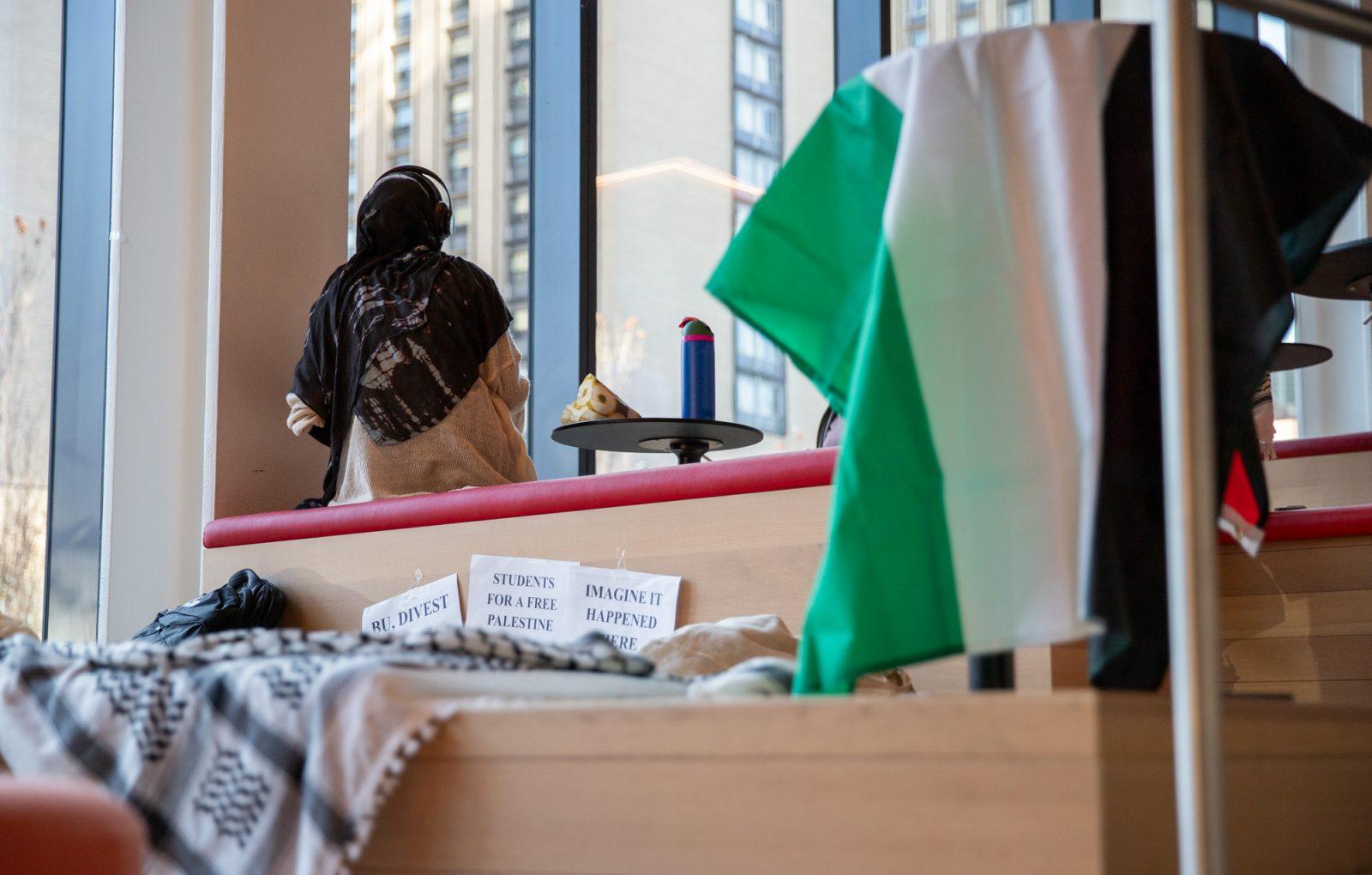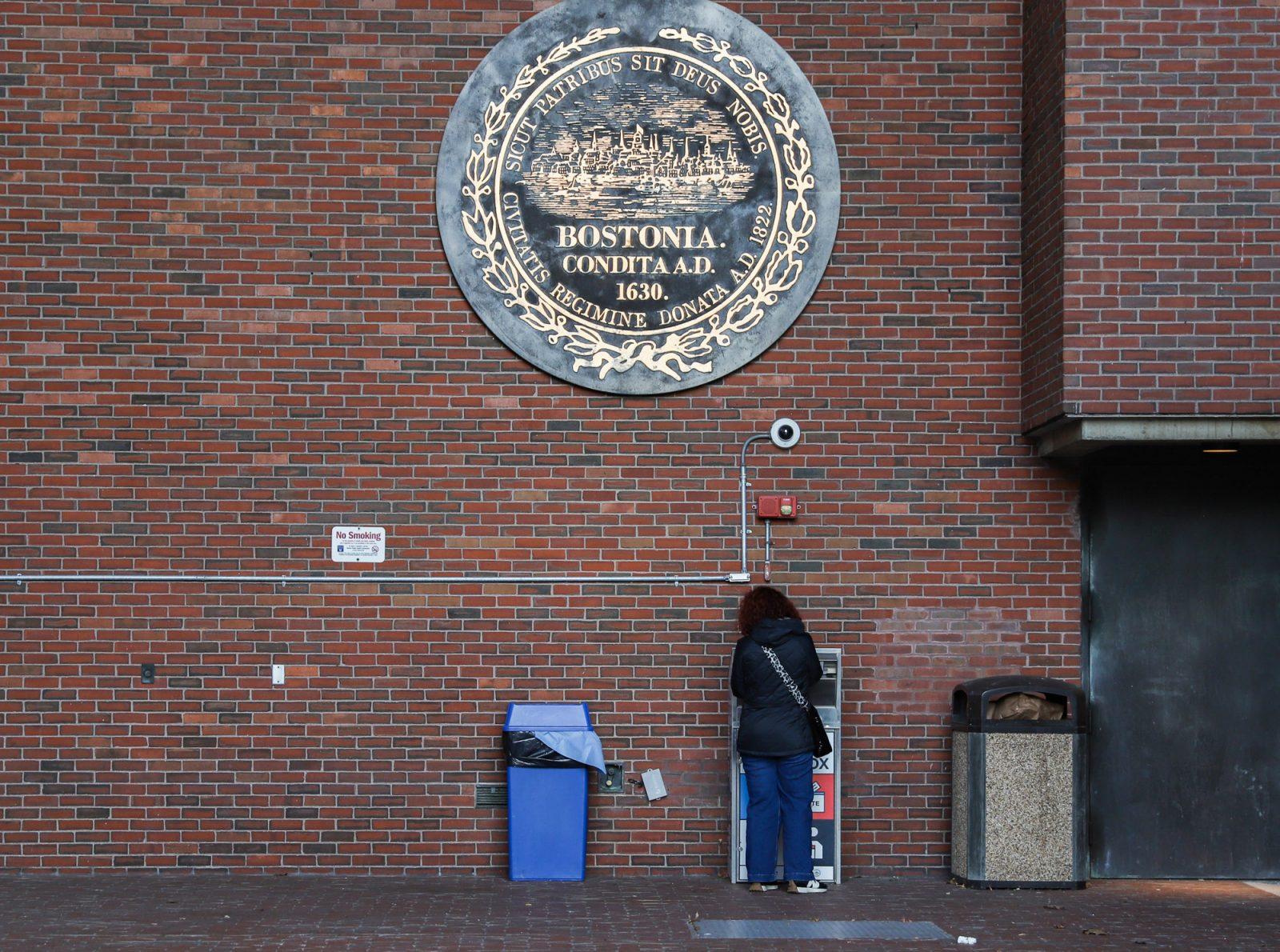On floor 17 of the Boston University Center for Computing and Data Sciences, more than 20 teams of students present their projects before a series of judges. Each project provides a solution and a prototype to one of four issues — climate change, equality, election involvement or healthcare and quality of life — and many groups worked through the night to finish them.
“We’re all for the goal of trying to impact the world,” said Ngoc-Mai Huynh, a sophomore at Howard University majoring in computer science.
This weekend, BU hosted Tech For Change’s second annual Civic Tech Hackathon, a two-day competition in which students from across the country use technology to develop solutions for national challenges.

Tech For Change is a national student organization “founded on the belief that technology can be used as a catalyst to foster a better and more equal society,” according to its website.
“We have the private sector version [of technology companies] … but there’s a feeling that we need to build the training methods and education methods and career pathways for students that have an interest in public service,” said Ziba Cranmer, director of BU Spark!, an innovation lab for computing and data science research housed at CDS.
Tech For Change was founded by BU and Howard University. In a growing tech industry dominated by for-profit businesses, Tech For Change offers a different way forward for those interested in technology.
“Not everybody’s trying to become a tech millionaire, go to work for OpenAI and do ChatGPT,” said Michelle Johnson, a professor emerita of the BU Department of Journalism and a second-time judge at the hackathon. “They’re also out here trying to build tools to help people in their lives.”
The hackathon offers students the opportunity to apply their skills to a meaningful goal while also receiving help and encouragement from mentors.
“We take the classes at school, but sometimes you don’t really get to see how they will impact real world situations,” Huynh said. “This was definitely one of those times where we could apply ourselves to something that actually matters.”
Huynh’s group created a website called HarmonyHub, which allows users to play matching games to learn about gender, class and racial inequalities. They also have plans to create a choose-your-own-adventure game where users encounter microaggressions and unfair biases and learn to respond in an appropriate manner.
“We’ve all had experiences of inequalities, from class, racial and gender,” said Arsema Gebreyesis, a freshman majoring in cybersecurity and criminal justice at Northeastern University, who worked on the project with Huynh. “We feel as though if we had the proper tools at [young] ages to understand them, we wouldn’t have let them affect us as much as we did in the past.”
The hackathon is open to students of all areas of study, said Karrington Riley, a sophomore in BU CDS and a hackathon ambassador. She said that Tech For Change’s nonprofit status gives more students, no matter their majors, the opportunity to participate in the hackathon.
“I feel like when people hear ‘hackathon,’ they think, ‘Oh, I have to code. I have to hack,’” Tadiwa Zinyongo, a sophomore in the BU College of Engineering and a hackathon ambassador, said.
To remove that preconception, Zinyongo said that he and Riley wanted to promote the hackathon as a place where “anyone could come just to have fun, to learn about technology” and learn “what it means to use that technology for good and use it to help other people.”
This year’s hackathon was funded by New America, a non-partisan think tank which focuses on equitable research and policy recommendation in areas including global politics, civic engagement and technology.
New America’s grant covered expenses like flights, hotels and meals at the hackathon, said Raniya Delil, a sophomore in the BU College of Arts and Sciences and the project manager for BU’s Tech for Change chapter.
The funding made the hackathon more accessible to students no matter their financial status, Cranmer said.
“I don’t think there’s a lot of opportunities for students in traditional academic programs to get exposure to these types of opportunities,” Cranmer said. “They’re looking for places to meet like-minded peers and to practice this type of work.”
There were four winning projects at the hackathon. SymptoCare, Chug and PharmaCutieCal addressed healthcare and quality of life issues, while ZKElection addressed election involvement.
Delil said that Tech For Change will continue to host events and unite students who share a passion for creating change through technology.
“Having a strong network and having everyone who has these interests in one place is better for ideation and developing these skills,” Delil said.
Delil said that Tech For Change is currently represented in 13 universities, with Columbia University initiating a chapter this year.
“Public interest technology is not just for technical majors. It’s really for students from all backgrounds,” Cranmer said. “If you’re interested in the intersection of society and technology, there’s a place for you in this movement.”






























































































































